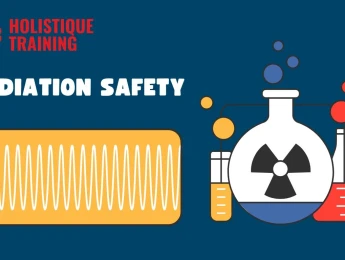Root Cause Failure Analysis (RCFA) is a process used to resolve or reduce failures by first identifying the cause and then choosing the best set of corrective actions. RCFA minimises operational downtime and maximises productivity by preventing repeated or related failures.
This course provides a comprehensive framework for applying RCFA in your organisation. You will develop a practical tool set by examining various problem-solving techniques and sustainable maintenance strategies. In addition, you will create a comprehensive action plan to implement RCFA successfully.
Upon completion of this course, participants will be able to:
- Develop and implement an effective maintenance strategy for your organisation.
- Identify and analyse variables in the maintenance environment.
- Understand, assess, and optimise your maintenance operations.
- Execute a Root Cause Failure Analysis successfully.
- Leverage problem-solving strategies appropriate for your organisational needs.
This course is intended for:
- Maintenance Engineers
- Operations Managers
- Quality Control professionals
- Anyone looking to understand the basis and application of RCFA
This course uses a variety of adult learning styles to aid full understanding and comprehension. Participants will review case studies to highlight key areas of importance and possible areas for faults. They will be supplied with the best tools required for learning exercises to improve their skills. Participants will analyse the examples to thoroughly understand how these skills, techniques and methods apply in the workplace.
Day 5 of each course is reserved for a Q&A session, which may occur off-site. For 10-day courses, this also applies to day 10
Section 1: The Basic Principles of Problem-Solving
- Discuss how to identify problems.
- Define vocabulary for Root Cause and Failure Analysis (RCFA).
- Examine decision-making models.
- Review Aristotle’s three knowledge types for improved decision-making.
- Describe the process of maintenance maturity indexing.
- Elaborate on the use of the six-level generic performance standard.
- Outline the logistics of continuous improvement.
Section 2: Sustainable Maintenance Strategies
- Describe modern maintenance practices.
- Examine the use of Statistical Quality Control (SQC).
- Outline the process of reverse risk analysis.
- Define maintenance and operations objectives.
- Identify and evaluate your resources.
- Analyse the complex, risk, and variability models.
- Calculate the maintenance cost ratio.
- Practice cross-referencing operational variables.
- Discuss strategies to address high maintenance costs.
- Apply 3 Sigma and 6 Sigma to decision-making.
- Discuss the importance of the quality and availability of data.
- Identify the relationship between data and costs.
- Understand the four stages of data maturity.
- Compare lateral and divergent thinking approaches.
Section 3: Root Cause Failure Analysis
- Develop and implement a maintenance strategy.
- Identify common challenges to improving maintenance processes.
- Analyse problem-solving techniques: generic, logical, creative, and other.
- Describe the RCFA methodology.
Section 4: Develop An Action Plan
- Describe the TRIZ problem-solving approach.
- Identify the best problem-solving methods for your organisation.
- Develop a framework to address problems rapidly.
- Define a list of standard questions to use in problem-solving.
- Review the logistical requirements to implement RCFA successfully.
Upon successful completion of this training course, delegates will be awarded a Holistique Training Certificate of Completion. For those who attend and complete the online training course, a Holistique Training e-Certificate will be provided.
Holistique Training Certificates are accredited by the British Assessment Council (BAC) and The CPD Certification Service (CPD), and are certified under ISO 9001, ISO 21001, and ISO 29993 standards.
CPD credits for this course are granted by our Certificates and will be reflected on the Holistique Training Certificate of Completion. In accordance with the standards of The CPD Certification Service, one CPD credit is awarded per hour of course attendance. A maximum of 50 CPD credits can be claimed for any single course we currently offer.
- Course Code PO3-103
- Course Format Classroom, Online,
- Duration 5 days









